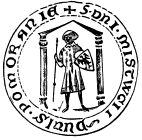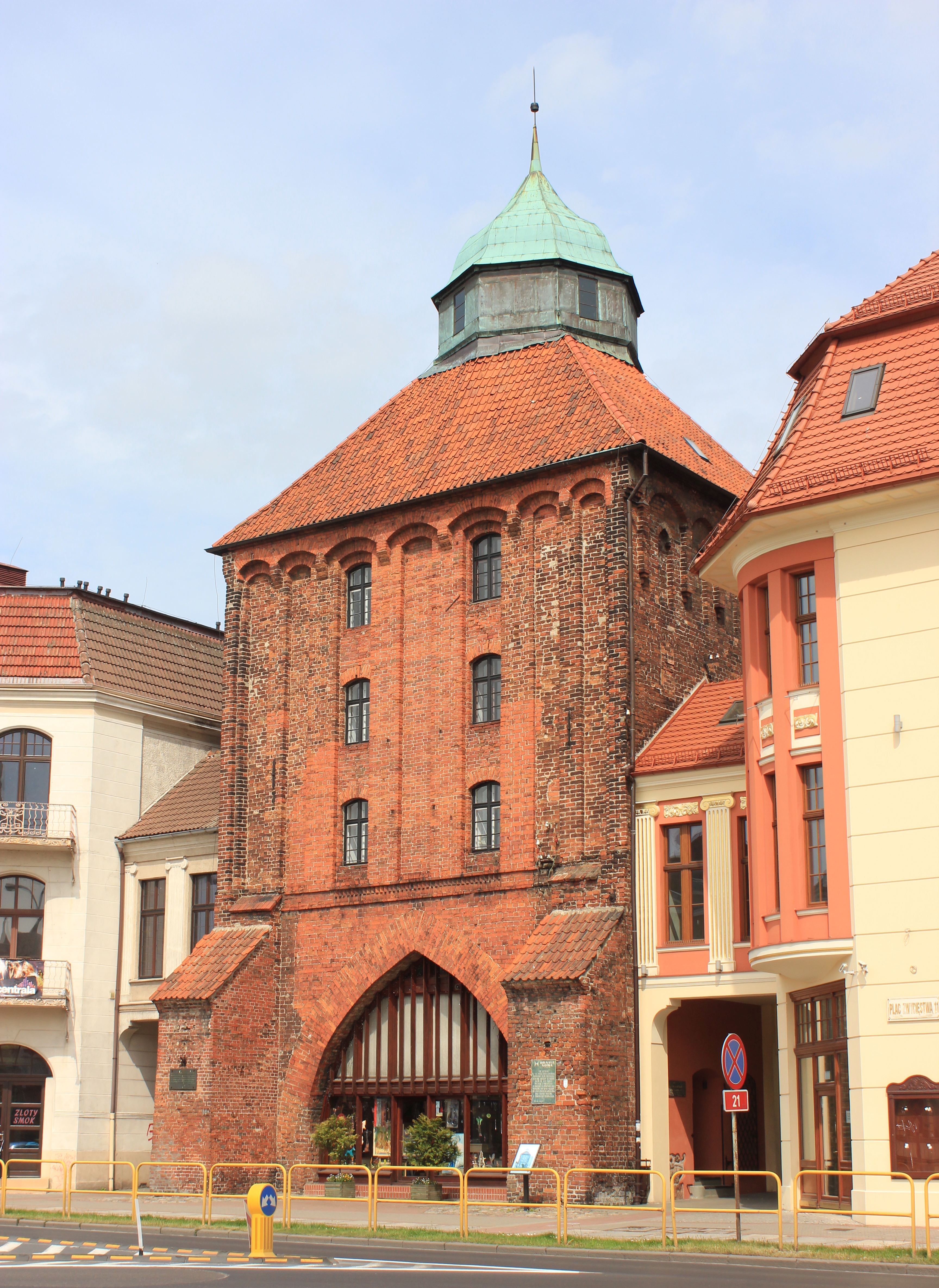|
Sulisława
Sulisława (died after 25 December 1294) was the daughter of a Pomeranian knight. She was originally a nun in Słupsk, but in about 1285, she became the mistress of Mestwin II. On 26 August 1288, after his divorce from Euphrosyne of Opole Euphrosyne of Opole () (1228/30 – 4 November 1292) was a Polish duchess and regent. She was a daughter of duke Casimir I of Opole and his wife Viola, Duchess of Opole, and a member of the House of Piast. She was Duchess of Kuyavia from her f ..., Mestwin married Sulisława. Sources *B. Śliwiński ''Poczet książąt gdańskich'', Gdańsk 2006, s. 53 *B. Śliwiński ''Kronikarskie niedyskrecje, czyli życie prywatne Piastów'', Gdańsk 2004, s. 76-77 13th-century births 1288 deaths Mistresses of Polish royalty {{Poland-reli-bio-stub ... [...More Info...] [...Related Items...] OR: [Wikipedia] [Google] [Baidu] |
Mestwin II, Duke Of Pomerania
Mestwin II ( or ''Mszczuj II'') ( 1220 – December 25, 1294) was a Pomeranian duchies and dukes, Duke of Pomerelia, member of the Samborides dynasty. He ruled Pomerelia as a sole ruler from 1273 to 1294. Early life Mestwin II was the son of Swietopelk II and the Přemyslid dynasty princess Eufrozyna. As a young man, in 1243 he was taken into the Teutonic Order custody as a hostage, part of the ceasefire agreement between his father and the Order, but the Order did not keep their part of this agreement and failed to return Mestwin II who was held by them until 1248 (for some time in the Order castle in Austria) when finally released. Acquiring power Most likely upon returning from Teutonic Order captivity his father made Mestwin II the Duke of Świecie (Schwetz) province circa 1250, and upon his father's death he began his challenge against his younger brother for Gdańsk (Danzig) in 1266, starting the so-called Pomerelian Civil War that lasted until 1273. He fought his younger b ... [...More Info...] [...Related Items...] OR: [Wikipedia] [Google] [Baidu] |
Pomerania
Pomerania ( ; ; ; ) is a historical region on the southern shore of the Baltic Sea in Central Europe, split between Poland and Germany. The central and eastern part belongs to the West Pomeranian Voivodeship, West Pomeranian, Pomeranian Voivodeship, Pomeranian and Kuyavian-Pomeranian Voivodeship, Kuyavian-Pomeranian voivodeships of Poland, while the western part belongs to the German states of Mecklenburg-Western Pomerania and Brandenburg. Pomerania's historical border in the west is the Mecklenburg-Western Pomeranian border ''Urstromtal'', which now constitutes the border between the Mecklenburgian and Pomeranian part of Mecklenburg-Western Pomerania, while it is bounded by the Vistula River in the east. The easternmost part of Pomerania is alternatively known as Pomerelia, consisting of four sub-regions: Kashubia inhabited by ethnic Kashubians, Kociewie, Tuchola Forest and Chełmno Land. Pomerania has a relatively low population density, with its largest cities being Gdańsk ... [...More Info...] [...Related Items...] OR: [Wikipedia] [Google] [Baidu] |
Knight
A knight is a person granted an honorary title of a knighthood by a head of state (including the pope) or representative for service to the monarch, the church, or the country, especially in a military capacity. The concept of a knighthood may have been inspired by the ancient Greek '' hippeis'' (ἱππεῖς) and Roman ''equites''. In the Early Middle Ages in Western Christian Europe, knighthoods were conferred upon mounted warriors. During the High Middle Ages, a knighthood was considered a class of petty nobility. By the Late Middle Ages, the rank had become associated with the ideals of chivalry, a code of conduct for the perfect courtly Christian warrior. Often, a knight was a vassal who served as an elite fighter or a bodyguard for a lord, with payment in the form of land holdings. The lords trusted the knights, who were skilled in battle on horseback. In the Middle Ages, a knighthood was closely linked with horsemanship (and especially the joust) from its orig ... [...More Info...] [...Related Items...] OR: [Wikipedia] [Google] [Baidu] |
Słupsk
Słupsk (; ; ) is a city with powiat rights located on the Słupia River in the Pomeranian Voivodeship in northern Poland, in the historical region of Pomerania or more specifically in its part known in contemporary Poland as Central Pomerania () within the wider West Pomerania (). According to Statistics Poland, it has a population of 88,835 inhabitants while occupying , thus being one of the most densely populated cities in the country as of December 2021. In addition, the city is the administrative seat of Słupsk County and the rural Gmina Słupsk, despite belonging to neither. Słupsk had its origins as a Pomeranian settlement in the early Middle Ages. In 1265, it was given city rights. By the 14th century, the city had become a centre of local administration and trade and a Hanseatic League associate. Between 1368 and 1478, it was a residence of the Duchy of Słupsk, Dukes of Słupsk, until 1474 vassals of the Crown of the Kingdom of Poland, Kingdom of Poland. According to ... [...More Info...] [...Related Items...] OR: [Wikipedia] [Google] [Baidu] |
Euphrosyne Of Opole
Euphrosyne of Opole () (1228/30 – 4 November 1292) was a Polish duchess and regent. She was a daughter of duke Casimir I of Opole and his wife Viola, Duchess of Opole, and a member of the House of Piast. She was Duchess of Kuyavia from her first marriage to Casimir I of Kuyavia, and Duchess of Pomerania from her second marriage to Mestwin II, Duke of Pomerania. She acted as regent of the Duchy of Kuyavia during the minority of her son Władysław I the Elbow-high in 1267-1275. Life Euphrosyne's paternal grandparents were Mieszko I Tanglefoot and his wife Ludmilla, a disputed Bohemian princess from the Přemyslid dynasty. Mieszko was son of Władysław II the Exile, Duke of High Poland and his wife Agnes of Babenberg. Agnes was daughter of Leopold III, Margrave of Austria and his wife Agnes of Germany, who was a daughter of Henry IV, Holy Roman Emperor and his first wife Bertha of Savoy. Euphrosyne's maternal family are disputed. Some believe her mother, Viola wa ... [...More Info...] [...Related Items...] OR: [Wikipedia] [Google] [Baidu] |
13th-century Births
The 13th century was the century which lasted from January 1, 1201 (represented by the Roman numerals MCCI) through December 31, 1300 (MCCC) in accordance with the Julian calendar. The Mongol Empire was founded by Genghis Khan, which stretched from Eastern Asia to Eastern Europe. The conquests of Hulagu Khan and other Mongol invasions changed the course of the Muslim world, most notably the Siege of Baghdad (1258) and the destruction of the House of Wisdom. Other Muslim powers such as the Mali Empire and Delhi Sultanate conquered large parts of West Africa and the Indian subcontinent, while Buddhism witnessed a decline through the conquest led by Bakhtiyar Khilji. The earliest Islamic states in Southeast Asia formed during this century, most notably Samudera Pasai. The Kingdoms of Sukhothai and Hanthawaddy would emerge and go on to dominate their surrounding territories. Europe entered the apex of the High Middle Ages, characterized by rapid legal, cultural, and religious ... [...More Info...] [...Related Items...] OR: [Wikipedia] [Google] [Baidu] |
1288 Deaths
Year 1288 ( MCCLXXXVIII) was a leap year starting on Thursday of the Julian calendar. Events By place Europe * A civil war breaks out on Gotland between the burghers of Visby and the rural farmers of Gotland; while the exact reason for this war is unknown, the most likely reason is the construction of a large wall around Visby, and the introduction of a toll, which the farmers were forced to pay. * June 5 – War of the Limburg Succession – Battle of Worringen: Brabantian forces under Duke John I defeat the coalition army of Cologne, Luxemburg, and Nassau at Worringen (in a struggle to conquer the Duchy of Limburg). John liberates the city of Cologne from rule by the Electorate of Cologne, which has previously been one of the major ecclesiastical principalities of the Holy Roman Empire. * Summer – Sultan Muhammad II drives the rebellious Banu Ashqilula from one stronghold to the next, where they are finally expelled from Granadan territory in ... [...More Info...] [...Related Items...] OR: [Wikipedia] [Google] [Baidu] |



